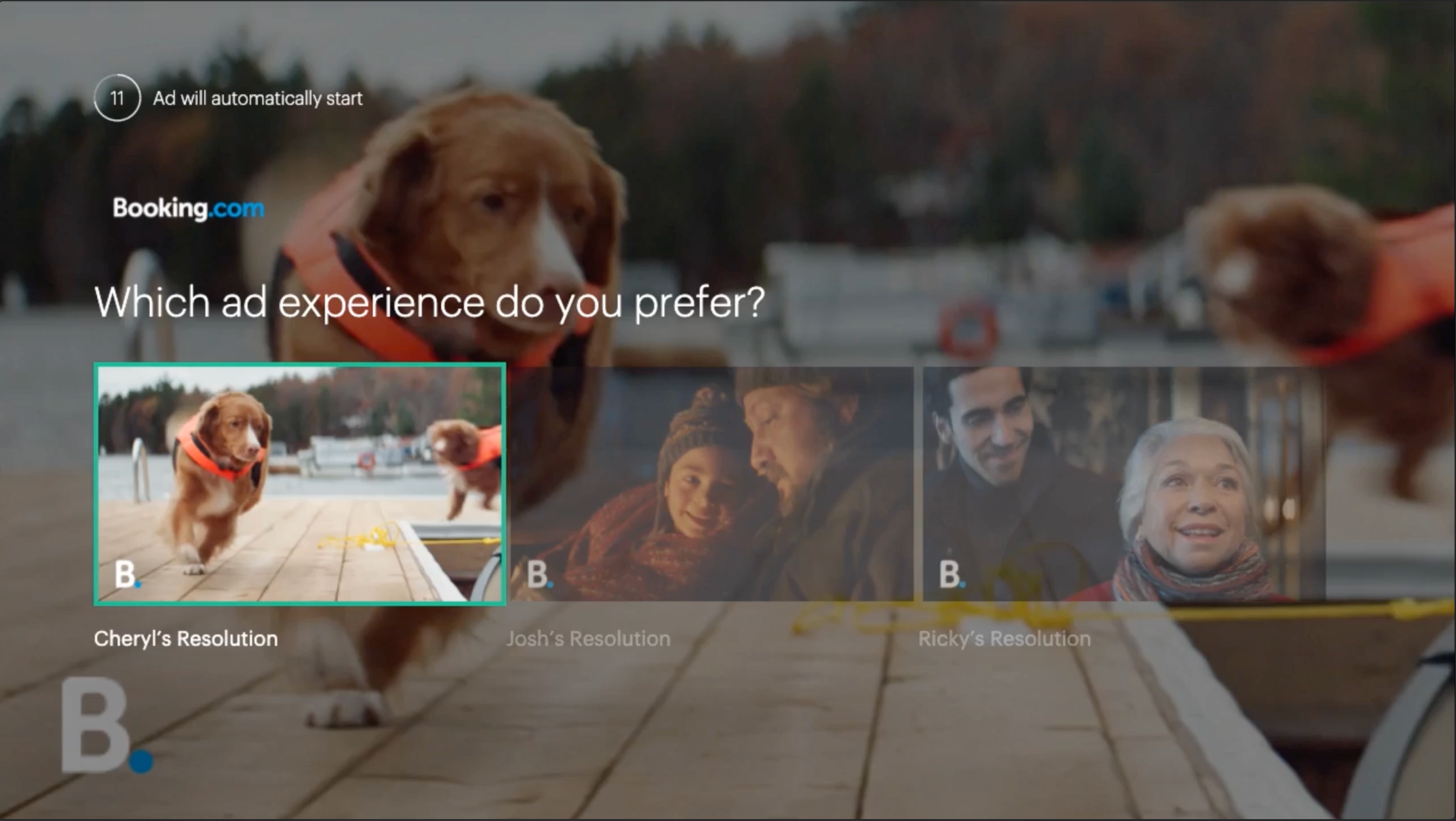Every few months we partner with the City of Chicago to provide a free training to business owners on the chronological order to follow to achieve digital marketing success. You may find the latest version of the webinar here:
Having the courage to make the leap into entrepreneurship can be both empowering and unnerving. You have a million things to juggle at once and sometimes you don’t know where to start. Or maybe you’ve already poured all your time, money, blood, sweat, and tears and still feel like you’re not doing enough to promote your business and build your online presence. We get it. The struggle is real.

Every business needs proper marketing in order to target customers, but it’s time to ditch the outdated antiquated methods of the 80’s and 90’s and start a more effective strategy that translates to the digital world we live in today. You owe it to yourself and to your business to be taken seriously and give your company the marketing strategy it deserves, so we’ve put together a beginner’s guide to building your online presence in chronological order. Plain and simple. One step at a time. So, let’s dive in, shall we?
1.Branding
The very first step when it comes to building your brand should be designing your logo and choosing your color palette. A well-designed business logo not only attracts customers, but is the single most visible manifestation of the company. It’s much more than a graphical representation, it’s an anchor, and a foundation for the branding of your company, no matter how big or small.
If your logo is outdated, does not look good across all formats, hard to read, or gives off the wrong impression about your company - it’s time to head back to the drawing board and start fresh on a new logo.
Effective logos are simple and well-balanced. They consist of various elements including colors, fonts, and graphics to come together to reflect your company’s unique identity and target the right people and right consumers.
2. Website
Creating an enticing website is the second step to a successful digital marketing strategy. When it comes to online impressions, you only get one shot. So you want to make sure you’re making a positive representation of your company, and not driving potential customers away due to a poorly executed site.
Your website should be simple and easy to navigate. Users are not looking for fluff or crazy imagery, especially when it comes to eCommerce sites. People have a fixed idea of what it should look like, so make it familiar and easy to use.
Keep your logos and website layout simple, but not boring. Boring can be just as bad as complex or busy. Remember, if users don’t like the aspect of your design, the less likely they will be to contact you or explore beyond your homepage.

3. SEO
Search engines are arguably one of the most important digital marketing tools, as it can be used to both drive brand awareness and acquire customers. Search Engine Optimization is the process of optimizing your online content so that a search engine shows it as a top result for searches of a certain keyword.
By using SEO correctly, you can improve your website’s ranking in search engine results by getting more clicks and seeing massive amounts of traffic, increasing conversion rates and improving your bottom line.
With 80% of searchers starting their searches on Google, you can see why search engine optimization is so important. That being said, using bad SEO efforts can also hurt rather than help your search rankings and be detrimental to your website traffic, causing harm to your business’s reputation both online and offline, so it’s important to avoid using cheap SEO tactics.

4. Google Business Profile
We’ve said it once, and we’ll say it again. Google searches play a HUGE role in our day-to-day lives, so claiming your business on Google should be a no-brainer. As the name implies, Google Business Profile (formerly called Google My Business) allows you to create a business listing on Google.
Attributes in a Google Business profile are designed to grab searchers’ attention by highlighting the necessary information customers need such as a business’ operating information, posts and customer reviews, among other details. Even though most of this information should already be on your website, GB indexes the content you provide for consistency across Google Search, Google Maps, and Google Shopping.
If you don’t establish a Google Business Profile account, you will miss out on the opportunity to generate more traffic and business and differentiate yourself in Google, as well as establish brand authority, and provide better customer support.

5. Social Media
Social media has changed our lives. From 2005, social media platforms such as Facebook, Instagram, Twitter, YouTube, LinkedIn, etc. have revolutionized the way we communicate on a daily basis. It’s a powerful tool, and as a small business owner, it should be a crucial component of your marketing strategy. Setting up social media accounts to expand your reach in different platforms should be your next step in your digital marketing journey.
We understand social media can be a tricky thing. It can be confusing and overwhelming. With so many social media outlets, which one do you choose? How often do you post? What do you post and how can it help your business? We know it can all seem mind-boggling, but at the end of the day, it comes down to this - social media is a tool to grow your business.
It’s not only an opportunity to advertise your products, it's also a means to connect with your customers, talk about relevant topics and express your brand's core values. Social media allows you to humanize and represent the very essence of your brand. From the colors you use in your content to your captions, every aspect of your social media tells your brand's story to the consumer.
With over 71% of all adults around the world having at least one social media account, if you’re still wondering whether you need to have a business account on social media platforms, the proof is in the pudding.

6. Paid Ads
Paid advertising has come a long way since 1994 when the first ever online banner was posted. We know for some, 1994 doesn’t seem that long ago, but fortunately online ads have grown by leaps and bounds since then. Today, it’s one of the most effective ways for businesses, big and small, with any size budget, to find new customers, and diversify their source of revenue.
Now that you have established your online presence with a website and social media, you can start focusing on effectively targeting your audience. But first, you need to know the most effective ad types.
Google Ads - advertisers bid to display brief advertisements, service offerings, product listings, to web users. It can place ads both in the results of search engines like Google Search and on non-search websites, mobile apps, and videos. Services are offered under a pay-per-click (PPC) pricing model.
Social Media Ads - utilizing social networks such as Facebook, LinkedIn, Instagram and YouTube to deliver paid ads to your target audience by leveraging various data sources. Advertisers are able to hyper-target their audiences and deliver personalized content based on demographics and user behavior.
Programmatic Advertising - This is a new and improved way for companies to buy and sell digital paid ads using artificial intelligence and machine learning. Compared to regular ad campaigns, programmatic advertising has a bunch of advantages, like being more efficient, targeting customers more precisely, analyzing data in real time, but more importantly, earning companies more money.
Programmatic advertising is way more efficient since it automates the ad buying process. Companies can save a ton of time and resources by showing the right ad to the right customer at the right time. This lets brands launch ad campaigns super fast and with laser precision, which gives them an edge over competitors.
Regardless of which ad type you choose, paid ads must be thoroughly planned and designed to ensure it is appealing enough to attract potential customers. The perfect ad constitutes a blend of graphics, the right written content, images, visuals, and research to help make the paid advertising campaigns far more effective.
7. Connected TV / PR / XR
The final step for a complete digital transformation is to usher in the next era of human connection with Connected TV, Public Relations, and/or XR (extended reality) campaigns. These campaigns unlock consumer demand with branded experiences that are more immersive, innovative and interactive than ever before.
Connected TV campaigns from apps such as Hulu are a simple solution that allows businesses of all sizes and all budgets to advertise alongside trusted, premium TV content. With the rise of the “cord-cutter” generation, switching from their traditional TV subscriptions in favor of online, streaming services, Connected TV campaigns is a new effective way to advertise using precise targeting in front of a highly engaged audience.
Extended Reality, or XR for short, is an umbrella term that encapsulates the spectrum of virtual reality (VR) to augmented reality (AR) and Mixed Reality (MR). For most companies adopting new technologies feels like taking a leap in the dark, but the reality is that extended realites are our future. From retailers using AR and MR apps that help shoppers visualize what certain products will look like in their homes before purchasing them, to VR creating immersive interactive experiences that allow users to get a better grasp of your company and product line. Extended realities connect brands with audiences in unexpectedly impactful ways, allowing your brand to be seen, innovative, and remembered.
Choose The Right Marketing Team
Now that you know all the steps you need to take to start your business, don’t make the mistake of not properly marketing your business with the right marketing team that will be just as dedicated to your success as you are. That’s where we come in. Our approach is simple and focuses on facilitating YOUR success, not ours. Our goal at DS&P is to deliver superior service and generate success for you.

From website design to branding, online ads and XR campaigns, DS&P is a one-stop shop for all your digital marketing needs. We specialize in customer-driven content that is not only personalized for your target audience, but also aids in humanizing your brand to potential and existing customers.
If you’re would like to get an ideal of the cost of digital marketing, or you're ready to take the next step in your business growth, reach out to us today to get started. Even if you’re not ready, but you would like to discuss the possibility of working in the future, or simply have a question, don’t hesitate to contact us.
We look forward to collaborating, growing, and assimilating from fellow business owners. Let’s start a conversation, and you never know—this can lead to a very profitable and rewarding future. Set up a call or fill-out our contact form HERE and let's get started on the present and future of digital marketing. Or visit our contact page here: https://www.dial911fordesign.com/contact-us










